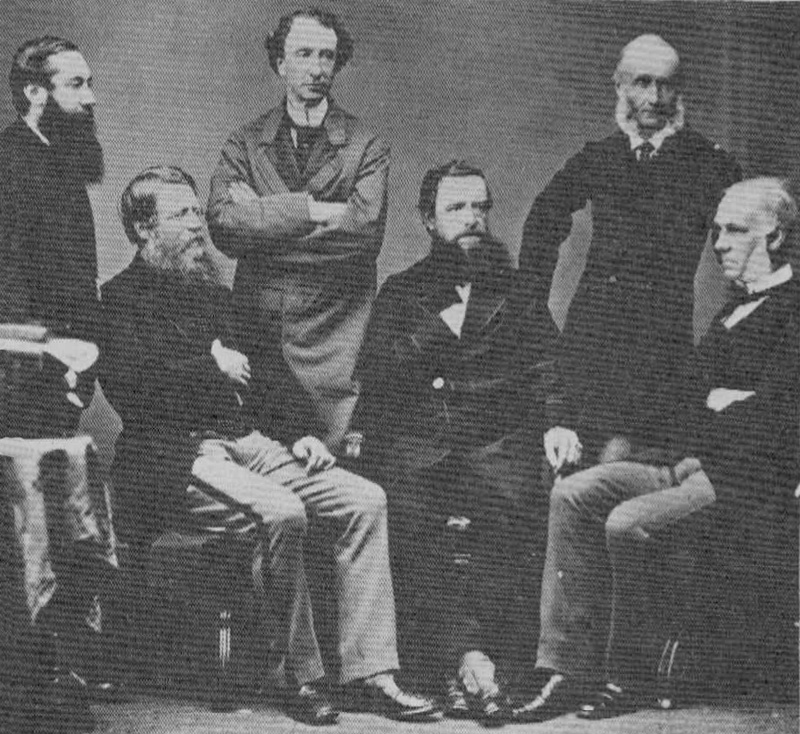
HISTORICAL EVENTS THAT TOOK PLACE ON THIS DAY IN CANADA
27 February

Macdonald and British Delegates, 1871
Canada's Demands Ignored
Sir John A. Macdonald was such a powerful figure in Canadian affairs that it is difficult to imagine his taking a back seat. Yet it happened on February 27, 1871, when he went to Washington as a member of a British delegation to try to settle problems that had arisen among Britain, Canada and the United States.
The United States was demanding reparation for the damage done by the British-built Confederate steamer Alabama during the Civil War. The States also wanted a discussion on coastal fishing rights. Canada wanted reparation for damage caused by the Fenians. The question of ownership of San Juan Island just south of Vancouver Island was also causing bad feelings.
Britain was fearful of what was happening in Europe and the Middle East, and had no time for trouble with the United States. The British delegates were not too concerned about Canada's problems; they wanted to make the best deal they could to repay the damage done by the Alabama. The delegation was led by the Earl de Grey and Ripon whom D. Hardy describes in From Sea Unto Sea as being "a handsome man with a scorn for colonials and a beard that would have graced any bull bison."
Since the agenda made no mention of the Fenian raids, the Americans refused to discuss them. Macdonald had hoped to make a deal giving the United States better fishing rights off Canadian coasts in exchange for an easier entry of Canadian products into the American market. He was shunted into the background by his four British colleagues and the upshot was that Britain paid the United States $15,500,000 for the damage done by the Alabama. The United States acquired San Juan Island, fishing rights and free navigation of the St. Lawrence River "in perpetuity" for which Canada was eventually paid $5,500,000 for forgetting to put the Fenian raids on the agenda.
Sir John A. Macdonald had to sign the agreement knowing that his political opponents would describe him as being "Judas Iscariot and Benedict Arnold rolled into one."
OTHER NOTABLE EVENTS ON THIS DAY IN CANADIAN HISTORY
27 February
-1629 Louis Hébert was made a seignior with the authority to grant land.
-1742 France issued additional card money worth 120,000 livres.
-1839 The Upper Canada Parliament advocated the union of Upper and Lower Canada.
-1867 Queen Victoria approved the British North America Act.
-1896 The Manitoba Legislature protested federal interference in its Separate Schools Act.
-1900 The government of British Columbia was dismissed by Lieutenant-Governor McInnes; all but one member left the legislature when the governor arrived to prorogue.
-1951 Canada posted an Army officer with the Supreme Allied Commander's staff: the first step in providing Canadian ground troops for Europe.